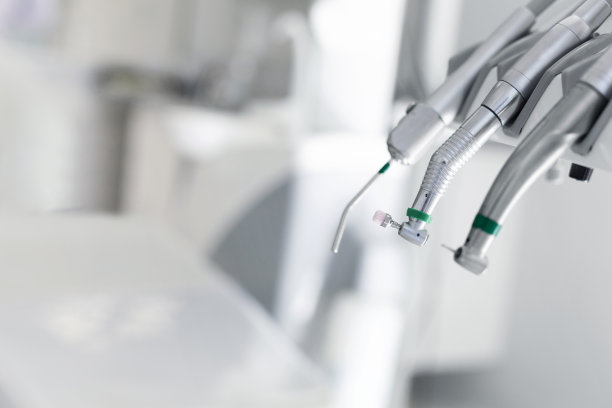Summary: Dental fillings are a common procedure aimed at restoring teeth affected by decay or damage. Before undergoing this treatment, its crucial to consider various essential steps and precautions. This article outlines the necessary preparations, expected post-treatment care, potential complications, and additional tips for a smoother recovery. By understanding these factors, patients can ensure a positive experience and maintain their oral health effectively.
1. Preparing for Your Dental Filling Appointment

Preparation is key to ensuring a successful dental filling procedure. Start by consulting with your dentist about your condition and the type of filling material they recommend. Common options include composite resin, amalgam, and gold. Knowing what to expect will alleviate any anxiety you may feel.
Its also important to inform your dentist about any medications or allergies you have. Some patients may require adjustments to their treatment plan based on their medical history. By providing this information, you can avoid complications during the procedure.
Lastly, try to avoid eating for a few hours before the appointment. This will help keep the area clean and reduce the chance of discomfort during the procedure. Arriving at your appointment well-prepared sets a positive tone for the rest of the dental visit.
2. What to Expect During the Procedure
Understanding the dental filling process can help demystify the experience. Generally, the appointment starts with numbing the affected area to ensure you remain comfortable. Local anesthesia is often used, and you may feel only slight pressure and vibrations as your dentist works on the tooth.
Once the area is numb, the dentist will remove any decay and clean the tooth before filling it. This step is critical as it ensures that no bacteria remain that could lead to further decay. After cleaning, the dentist will apply the filling material, shaping and polishing it to restore your tooth to its natural form.
The entire procedure can often be completed in one visit, lasting anywhere from 30 minutes to an hour. Discussing your concerns with your dentist beforehand can further enhance the overall experience.
3. Post-Procedure Care and Recovery
After your dental filling, it鈥檚 essential to follow specific care guidelines to promote healing. Initially, you may experience some numbness from the anesthesia. Be cautious to avoid biting your cheek or tongue during this period. It鈥檚 advisable to wait until the numbness wears off before eating.
Maintaining good oral hygiene is crucial to prevent any post-treatment complications. Brush gently near the filled area, and avoid very hot or cold foods for the first 24 hours to minimize discomfort. If you notice persistent pain or sensitivity in the filled tooth, contacting your dentist promptly is essential.
Additionally, schedule follow-up appointments for your dentist to monitor the filled tooths condition. Regular check-ups will help ensure that the filling remains in good shape and aid in maintaining your overall dental health.
4. Recognizing Complications and When to Seek Help
While dental fillings are generally straightforward, complications can occur. Its vital to be aware of symptoms that indicate potential issues, such as extreme pain, prolonged sensitivity, or visible damage to the filling. Taking prompt action can prevent more severe problems down the road.
One specific complication to watch for is a deviation in bite alignment. If you notice that your bite feels different after the procedure, this could indicate that the filling needs adjustment. Always communicate any concerns with your dentist so they can address them appropriately.
Finally, staying informed about your dental health and having regular check-ups can help minimize risks associated with dental fillings. Understanding the signs of complications allows for timely intervention, ensuring the longevity of your dental work.
Summary:
In summary, being well-prepared for a dental filling procedure greatly contributes to a positive experience. Understanding the preparation required, what to expect during the filling, and the appropriate care afterward can significantly influence your recovery. Recognizing potential complications and knowing when to seek assistance help ensure the best possible outcome for your dental health.
This article is compiled by Vickong Dental and the content is for reference only.
Vickong Dental
Vickong Dental is a large medical group established in Hong Kong in 2008 by professors from well-known medical universities in Guangdong and Hong Kong, as well as medical doctors from key national '985' universities (including Master's supervisors and senior professors). The chain of branches brings together expert dentists with PhDs and Master's degrees from Hong Kong and Mainland China, committed to providing high-quality dental treatment.
"Vickong Dental Practices the University Motto of 'Healing and Serving Society,' with a Stable Operation for Sixteen Years. It Has Been honored with Hong Kong Enterprise Leaders's Choice,' and is a Global Trusted Implant Center for the Nobel Implant System. Recommended by Hong Kong Metro Broadcast and Guangdong Television, it Serves Customers from Over Thirty Countries and Regions, Gaining the Trust and Favor of Citizens from the Guangdong-Hong Kong-Macau Greater Bay Area and Surrounding Cities.

Thousands of customers' unanimous praise
The most recognized and highly recommended dental service by customers in the Guangdong-Hong Kong-Macau Greater Bay Area
We Ensure You Receive Detailed Care and Attention Here
Hong Kong standards, Shenzhen prices, Your Trusted English-speaking dentists

Vickong Dental Medical-Grade Instrument Disinfection Process
Vickong Dental Medical-Grade Instrument Disinfection Process

Vickong Dental Chain: A Warm and Comfortable Environment for Treatment






Appointment Hours

Q&A
Why choose Vickong Dental?
Vickong Dental practices the university motto 「Medicine to Benefit Society」, with each branch bringing together highly qualified dentists with doctoral and master’s degrees from Hong Kong and the Mainland, and has maintained seventeen years of steady operation。Recipient of 「2024 Hong Kong Enterprise Leaders Brand」, 「2025 Hong Kong Enterprise Leaders Brand」, a Nobel Biocare Global Trusted Implant Center, and a brand recommended by Metro Radio Hong Kong and Guangdong TV。
To date, we have served customers from more than thirty countries and regions,earning exceptionally high word-of-mouth recognition and trusted recommendations from residents across the Guangdong-Hong Kong-Macao Greater Bay Area and surrounding cities
We have eight major branches in Zhuhai、Shenzhen,and a consultation and service assurance center in Hong Kong,so you can book a free consultation at any time for any questions,which is very reassuring.
If I do not accept the quotation after the CT scan, will I be charged??
No! As long as the actual treatment has not started, you will not be charged any fees.
Will there be any additional charges during the treatment process?
No, there won’t be any additional charges. Before treatment begins, we will clearly explain the treatment plan and its corresponding fees. Only after the patient agrees and signs the consent form will we proceed with the dental service.
Can I pay in Hong Kong dollars?
Yes. Vickong Dental accepts payment in Hong Kong dollars. The amount will be converted based on the exchange rate of the day, and the applicable rate will be clearly communicated to you in advance.
Can I reschedule my appointment at any time?
Yes. Please contact us via **WeChat** or **WhatsApp** as early as possible, providing your original appointment time and details, along with your preferred new date and time slot for rescheduling.













